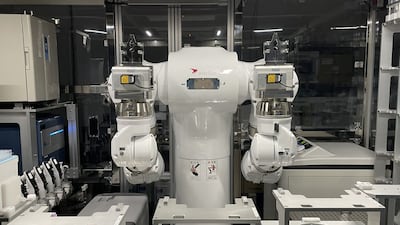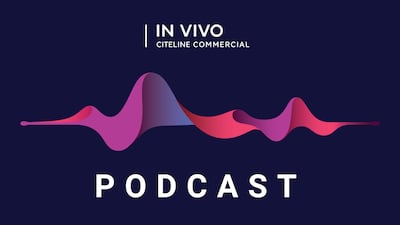New Science
Intranasal H5N1 vaccine experts discuss Phase I data, mucosal immunity, BARDA/NIH funding realities and how BlueWillow Biologics' NanoVax platform could strengthen global pandemic flu preparedness and respiratory defenses.
A new CEO, a passionate founder, early-stage R&D and hopes of an IPO – can Swiss biotech Topadur find success?
Inductive Bio receives $21m from ARPA-H to develop AI toxicity models using human tissues, partnering with Amgen to replace animal testing in drug development.
Cellafa Bioscience, an Astellas-Yaskawa joint venture, uses Maholo robotic automation and AI to standardize cell therapy manufacturing, targeting GMP compliance within two years and global expansion.
The verdict from the front lines of drug development is unmistakable: RWD and AI won’t transform trials through hype alone – they deliver only when welded to airtight data practices, transparent models and accountable operations.
Recursion recently announced the completion of a $30m microglia map and named Najat Khan as CEO, replacing co-founder Chris Gibson.
In this episode, In Vivo speaks with Micha Breakstone, co-founder and CEO of Somite.AI, and Samantha Dale Strasser, VP of strategy, to explore how their techbio is applying foundation models to human cell differentiation.
Four organizations pursue distinct virtual cell strategies: Xaira emphasizes perturbational data, CZI builds modular foundations, Recursion integrates lab-in-loop validation, Noetik starts with patient tissue for drug discovery.
Controlling for personality traits in clinical studies can deliver significant improvements in trial precision, with implications particularly relevant for CNS drug development
The billion-dollar startup has doubled headcount, released massive datasets and is advancing therapeutics, but the hard part lies ahead.
In this episode of the In Vivo podcast, Lupus Therapeutics' Stacie Bell discusses transforming lupus drug development through patient-centered clinical trials, promising new oral therapies and revolutionary cell therapy approaches.
The mathematician-turned-CEO is building an atlas of clinical immune biology to revolutionize precision medicine.
Three digital twin approaches compete: image-based precision, phenotypic modeling and massive data aggregation.
Early commercial successes are proving the value of digital twins, yet regulatory uncertainty and cultural resistance continue to limit widespread uptake across biopharma.
London-based Latent Labs has launched what it calls a “frontier AI model” for protein binder design, claiming hit rates of 91-100% for macrocycles and 10-64% for mini-binders across seven therapeutic targets, a dramatic improvement over traditional drug discovery’s sub-1% success rates.
Denmark’s €80m QuNorth project, co-led by the Novo Nordisk Foundation, launches most powerful quantum computer to advance drug discovery and broader scientific research across the Nordics.
A 25-year-old's “naive optimism” becomes the driving force behind one of biopharma's most ambitious AI ventures.
Tevard Biosciences CEO Daniel Fischer discusses how engineered suppressor tRNAs overcome nonsense mutations, restoring full-length protein production to treat rare genetic diseases like Dravet syndrome.
A new AI-based platform is designed to condense months of clinical data analysis into minutes by translating plain language data queries into epidemiologically valid research requests.
Akelos is developing a first-in-class, non-addictive HCN1 inhibitor for peripheral neuropathic pain, based on anesthesiology research from Weill Cornell. The compound is designed to avoid the brain and heart, and has shown strong preclinical efficacy and safety with NIH backed development underway.














